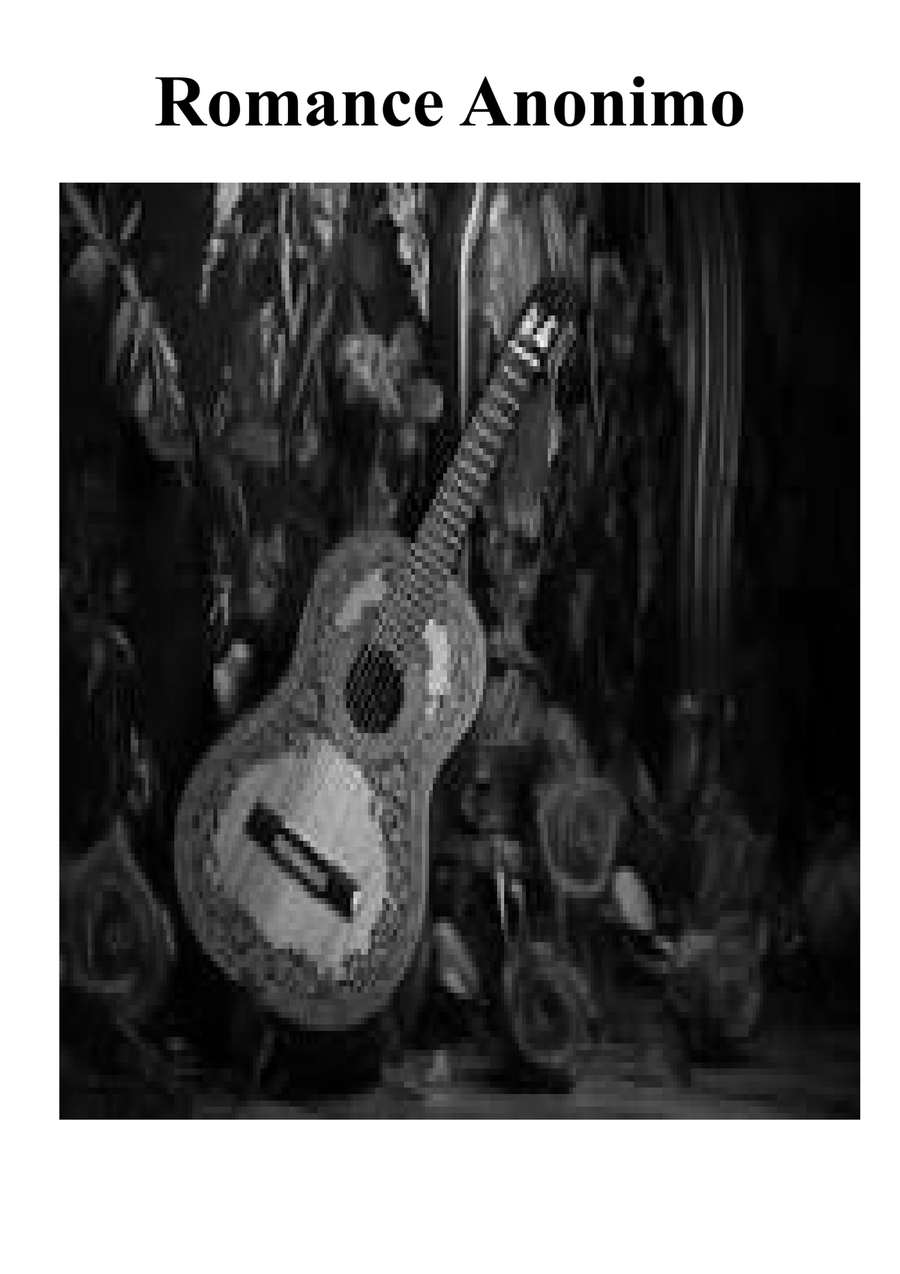Solo Guitar - Level 4 - Digital Download SKU: A0.1441944 Composed by Anon. Arranged by Keith Terrett. 20th Century,Classical,Contest,Festival,Instructional,Multicultural,World. Individual part. 7 pages. Keith Terrett #1021937. Published by Keith Terrett (A0.1441944). Romance Anonimo for Guitar.This beautiful piece, known as Romance d'Amour, Anonymous Romance, Spanish Romance, Romance de Amor, Romanza among other names are a very well know piece. The composer is unknown.Romance Anónimo (Anonymous Romance) is a piece for guitar, also known as Estudio en Mi de Rubira (Study in E by Rubira), Spanish Romance, Romance de España, Romance de Amor, Romance of the Guitar, Romanza and Romance d'Amour among other names. It is composed in the style of parlour music of the late 19th century in Spain or South America,History:The style of the piece is that of the parlour music of the late 19th century in Spain or South America. It has a closed three-part form, the first in the minor key and the second being in the major key, with the third part being a restatement of the first.The origins and authorship of the piece are unknown, hence 'anonimo'. It is thought to have been originally a solo instrumental guitar work from the 19th century, and has variously been attributed to Antonio Rubira, David del Castillo, Francisco Tárrega, Fernando Sor, Daniel Fortea, Francisco Vicaria l Llobet, Antonio Cano, Vicente Gómez, and Narciso Yepes. It has been suggested that doubts about its authorship may have been encouraged by a wish to avoid paying copyright fees and the desire of publishing companies to claim the lucrative copyright.Early recordings:The earliest recording of Romance is found on a cylinder from the Viuda de Aramburo label[3][4][5][6] featuring guitarists Luis and Simon Ramírez, which was made in Madrid sometime between 1897 and 1901. The work is titled Sort-Estudio para Guitarra por S. Ramirez. The name Sort, as it occurs on the cylinder's title, probably refers to Fernando Sor, as his surname is sometimes spelled Sort or Sorts. The recording may be heard on the Doremi CD release Tarrega, His Disciples, and Their Students (DHR-7996) and online at the UCSB Cylinder Audio Archive.Possible origins:An early publication of the work, known as Estudio para Guitarra de Rovira and attributed to Spanish guitarist Antonio Rubira,[13] was published by J.A. Medina e Hijo in Argentina before 1925 (probably in 1913, when the publisher ceased activities).Guitarist and composer Isaías Sávio (Montevideo, 1900 — São Paulo, 1977) published the work in 1959 with the title Romance de Amor (Estudo em Mi) Música de Antonio Rovira (Segunda metade do século XIX) He published information which cited Antonio Rubira as the author. (See Violào e Mestres Junio, 1966 / São Paulo, Brasil.Sávio gives information that Juan Pargas, who knew Rubira, gave the Estudio de Rovira to the guitarist Juan Valles in 1876 or 1878. Sávio mentions that the work became popular in Buenos Aires and began to be published by, among others, Spaniard Pedro Maza; and that the work appeared in the method of Pedro Mascaró y Reissig, published in Montevideo in 1919, with the title Conocido por Estudio de Rovira.Publishing company Ricordi of Argentina currently publishes the piece, and attributes authorship to Antonio Rubira.
